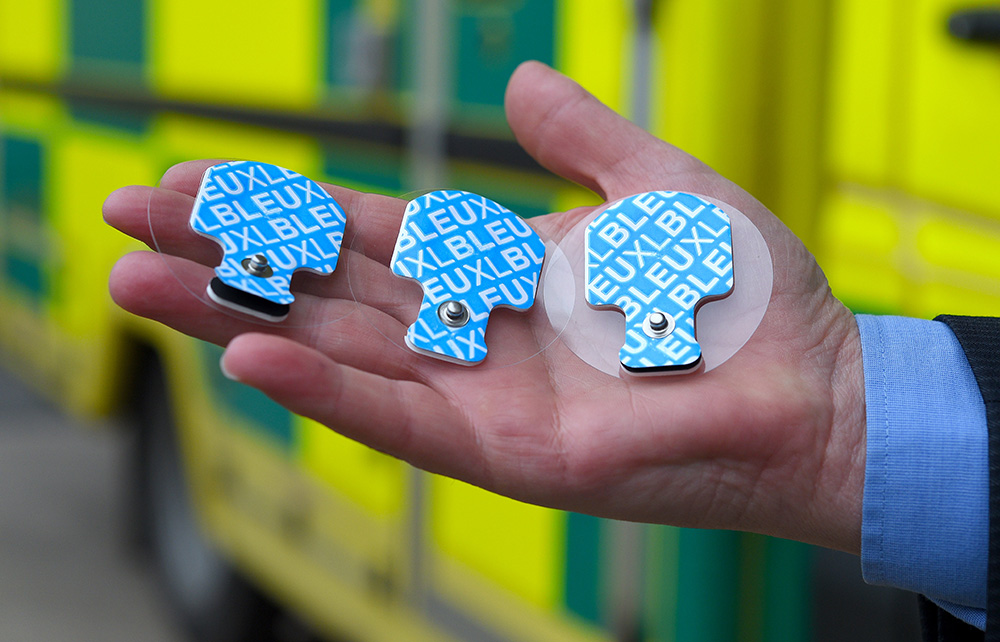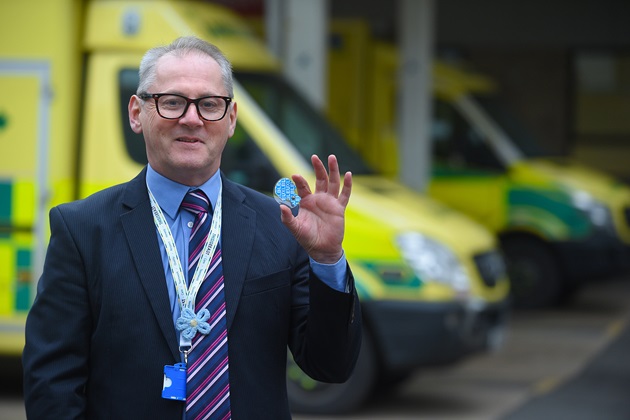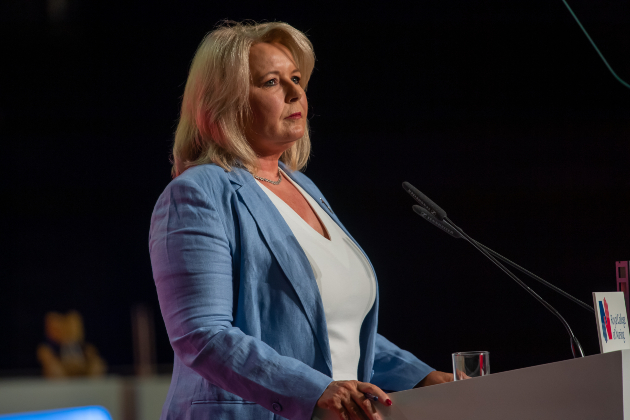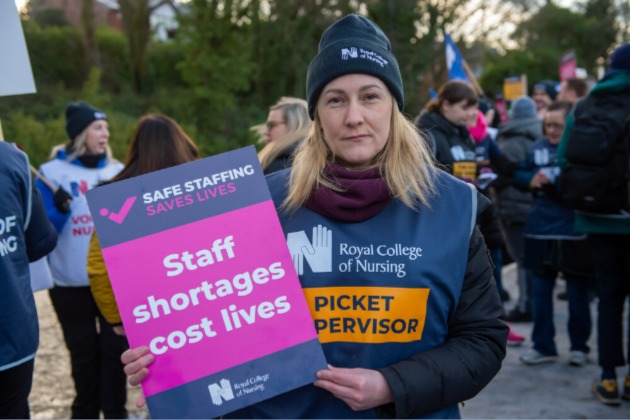The NHS spends more than £4.5 billion a year on clinical supplies and services in England alone. The RCN set up the Small Changes, Big Differences project to raise awareness of the value nurses can bring in choosing products that both improve the patient experience and are cheaper. It also exists to showcase innovation in procurement and reduction in waste.
Last year, Sandy Brown, Director of Nursing and Clinical Quality at the East of England Ambulance Service NHS Trust (EEAST), spearheaded an award-winning project to improve how ambulance and acute sectors work together to deliver clinical care. He set out to review the shared products his ambulance trust and the area’s hospitals use.
“I wanted to create efficiency, while improving patient care across organisations with shared benefits,” he says. “It’s the first project of its kind and, as with many other successful initiatives, is simple in concept.”
The pilot for the project started in July and initially focused on electrodes. The ambulance trust was using one type of electrodes which were then being replaced with a different type once the patient arrived in A&E.
“After reviewing their use, we moved to a dual-use electrode, which is multi-machine compatible and can be used by all organisations thereby allowing the product to be used for the patients’ stay or up to 72 hours. Not only does this reduce waste, but A&E staff don’t have to remove the product in order to carry out their duties.”

Feedback from staff has been positive. “There were some initial teething problems around the awareness of both the trial and how the new product should be used. However, once staff were well informed, there was a shared agreement that the change in product improved the quality of care for patients across both services.”
The financial savings are significant. According to NHS Supply Chain data, the health service buys more than 270 million electrodes every year at a cost of between 2p and 50p each. By moving to a dual-use electrode the EEAST has saved £39,000 and it is estimated Addenbrooke’s Hospital A&E department will save £7,000. By rolling the initiative out nationally, the NHS could save £1.2 million annually.
Reviewing everyday items
Meanwhile, Clinical Procurement Specialist Andrew Varley and Head of Procurement Paul Saunders, both at the Taunton and Somerset NHS Foundation Trust, have set up monthly meetings to swap clinical products for cheaper alternatives.
The meetings are named after the RCN’s Small Changes, Big Differences project and nursing staff of all levels are invited to review four or five clinical products that they use day-to-day.
“The products are put in the middle of the table, alongside two or three cheaper alternatives. The director of nursing is also in the room and together we decide on a new product of the same quality but for a lower price,” Andrew says.
Staff are at the heart of the decision rather than having changes imposed on them
Five meetings have taken place so far and on average the trust has saved £10,000 each month. “We’ve swapped patients’ toothpaste from a 50ml tube to a 5ml tube, changed the brand of pregnancy tests and non-woven swabs we use and identified products where we can order a lower quantity.
“All of these changes are simple but have helped us to reduce waste, save money and improve the patient experience. Staff enjoy the meetings because they are at the heart of the decision rather than having changes imposed on them,” Andrew concludes.
After seeing the success of these meetings, Liam Horkan, Clinical Procurement Nurse Specialist at Colchester Hospital University NHS Foundation Trust (pictured above with nursing colleagues), set up his own Small Changes, Big Differences meetings. “I loved the concept of engaging clinical staff in a different way,” he says.
“Often nursing staff don’t know how to get involved in some of the decisions we make on clinical products. But the biggest challenge is them having time to come away from frontline work to feed into meetings. We’re using our intranet site and encouraging staff to post and discuss ideas in staff meetings and other forums to combat this.”
Being able to embed procurement into clinical practice has meant the trust is now looking at projects from all aspects of quality, safety and value. The Gloves Are Off initiative at Colchester is an example of how clinically led ideas have inspired a project that saves money and improves practice. The project has reviewed how and when staff wear gloves, focusing on appropriate use and improving hand hygiene.
Frontline staff also highlighted issues with how cardboard boxes made dispensing gloves difficult, including torn boxes and gloves coming out in handfuls rather than individually. This led to a second phase to the project where a single glove dispensing system has been introduced. This will reduce waste and also avoid the risk of contaminating gloves. The project is aiming to both reduce volumes of gloves by 30% and deliver a saving of £35,000.
The view from here
Rose Gallagher, RCN Professional Lead for Infection Prevention and Control, says: “Our Small Changes, Big Differences project has been a huge success. It’s captured the imagination of nursing staff and the aim of buying better to reduce clinical waste, cut costs and improve the patient experience has resonated very strongly with our members.
“We recognised early on that most clinical staff don’t associate their role with procurement, the very word is a bit of a turn off. But by shifting the focus onto quality and safety, encouraging people to take ownership of the products they use and think how they can be improved, reduced or made more efficient, we’ve helped members to make huge savings in their workplaces.

“However, it’s not all about the money, though it is important. This is about empowering nursing staff so that they can make a difference, not only to the better running of their organisation, but to the better care of patients.
“The project has been running for four years and has evolved intuitively over that time. What’s most heartening is that organisations are taking this project and making it their own.
“Now our focus shifts to waste management alongside procurement and we’ll be looking to reshape how we can make small changes lead to big differences in different ways. The NHS is a massive consumer of disposable plastics and our absolute priority will be to help reduce the use of non-recyclable plastics as a matter of urgency.”
Want to get involved?
Find out more about the project and get inspiration for making small changes that can make a big difference at your workplace at www.rcn.org.uk/smallchanges








